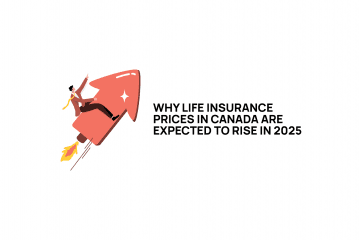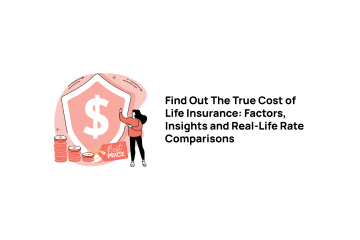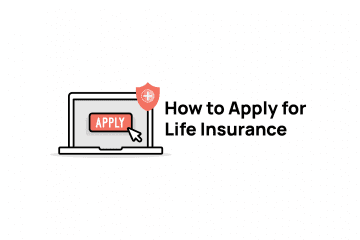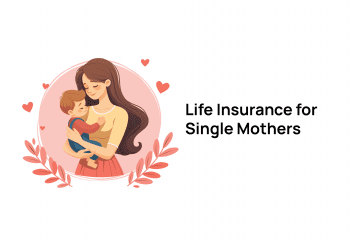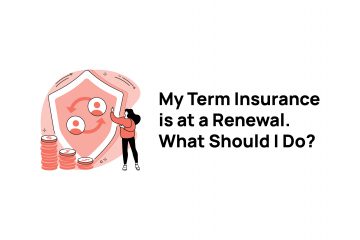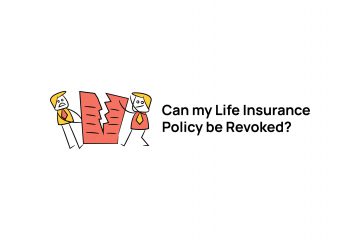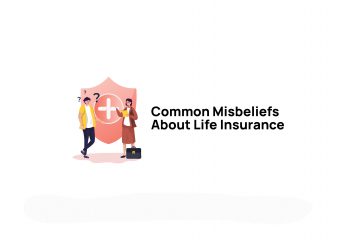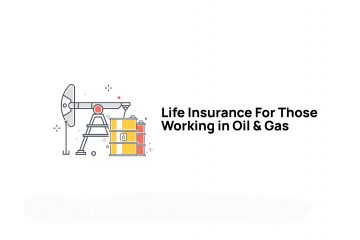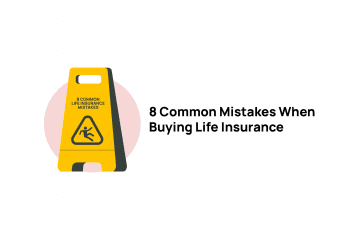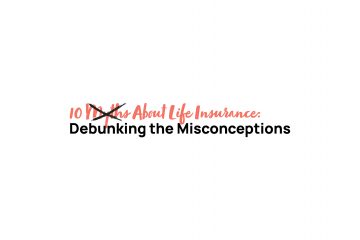In This Article
- Is a life insurance death benefit taxable?
- Do you pay taxes on life insurance premiums?
- Are my insurance premiums tax deductible?
- How term life insurance affects your taxes
- How permanent life insurance affects your taxes
- Is a life insurance policy’s cash value taxable?
- Is a life insurance policy loan taxable?
- How to keep taxes for life insurance simple
- Key points to remember
Life insurance is designed to protect your financial responsibilities and provide for your family or dependents if you no longer can. The money issued from a life insurance claim—called a death benefit—can be used by a policy’s beneficiaries for many things, like paying for funeral costs, paying off a mortgage, or as income replacement. In all these cases, it is important to know that the death benefit is not considered income and is therefore not subject to taxation in Canada.
That being said, there are some tax implications that come along with buying a life insurance policy. We’ll take you through the most common questions about life insurance and taxes in Canada so you can understand how you and your beneficiaries will be affected and make more informed decisions about what type of life insurance to buy based on your needs.
Is a life insurance death benefit taxable?
In general, life insurance death benefits are not subject to tax in Canada. Beneficiaries can file a claim and receive a lump sum, tax-free payout when the insured party dies. Under current Canadian law, since death benefits are not considered as income—they are grouped in with monetary gifts and inheritances—they are not subject to tax.
All that to say, if you name a beneficiary, you do not have to worry about burdening them with complicated forms when tax season comes around—regardless of the size of the payout. If you are a beneficiary of a life insurance policy, you will not be required to declare the death benefit as income on your Canadian Revenue Agency (CRA) tax return. You are also free to use the tax-free death benefit at your discretion.
There are however some cases in which a life insurance policy’s death benefit may be taxable. If a policy holder does not name a beneficiary or if the beneficiaries (primary and contingent) are not able to claim the benefit, the death benefit is automatically transferred to the deceased’s estate, at which point it may be subject to tax. In this scenario, the deceased’s estate (including the death benefit) may be subject to probate and legal fees and estate administration taxes. The estate must also pay off any remaining debts, including owed taxes, before any remaining assets are distributed.
It is therefore advisable to name a beneficiary for your life insurance policy so the full death benefit can be passed down tax free. If a beneficiary should die before the insured person, it is also important to update the policy so that there is an eligible beneficiary.

Do you pay taxes on life insurance premiums?
Life insurance policies are kept active through the regular payment of premiums. In Canada, these payments—typically made every month—are not subject to GST/HST taxes. Premiums are not considered taxable because life insurance is considered a financial service. In short, this means that policy holders do not pay taxes on the premiums they pay to the life insurance provider.
In many provinces, there is a Provincial Insurance Premium Tax, which applies to life insurance premiums as well as other insurance premiums. This tax, which is owed to provincial governments, is paid by insurance companies. In Ontario, for example, all life insurance companies insuring a resident of the province must pay a tax rate of 2% on all premiums collected.
Are my insurance premiums tax deductible?
In almost all cases, premiums for individual life insurance policies are not tax deductible. Life insurance policies are considered a personal expense in Canada, so it is not possible to write off your premiums on your yearly tax return.
That being said, there are specific circumstances that do allow for some life insurance costs to be deducted. If, for example, you took out a loan from a third-party lender using your permanent life insurance policy’s cash value as collateral or took out a policy loan directly from your insurance provider, interest you pay on the loan is considered tax deductible as long as the loan was used to earn income. For instance, if you used the loan to invest in your business or income-earning property.
Another scenario in which you may be able to write-off premium costs for a life insurance policy is if you have donated the policy to an officially registered charitable organization and are still paying its premiums. If this is the case, your premiums will not be tax deductible, but they will make you eligible for a tax credit.
Additionally, if you are business owner that pays life insurance premiums for your employees, you can claim the premiums on your company tax return as a reasonable business expense. The employee with the life insurance coverage cannot, however, claim the premiums.
Get a free quote
How term life insurance affects your taxes
Term life insurance refers to a common type of life insurance contract in which policy holders pay premiums and receive coverage for a set number of years (a term). Customers can choose the length of the term (i.e. 10, 15, 20, 25, or 30 years) as well as the size of the policy. If the policy holder dies within the term, a lump-sum tax-free death benefit is issued to the policy’s beneficiary. If the term expires before the insured person dies, the life insurance coverage simply lapses (or can be renewed or converted).
Term life insurance is the most affordable form of life insurance, making it a popular option, especially amongst young families. It is also very straightforward in terms of what it offers. As a policy holder, you pay fixed premiums for a set number of years. If you die within the term, the insurance company pays the death benefit. If not, the life insurance company simply keeps the premiums you paid and coverage ends. Because life insurance premiums are not taxed or tax deductible, and the death benefit is also tax-free if paid to a beneficiary, term life insurance has few tax implications. If a beneficiary is not named on the policy, however, and the term life insurance death benefit goes to the policy holder’s estate, it may be subject to fees and taxes. (See the section above, Is a life insurance death benefit taxable?, for more details on this.)
How permanent life insurance affects your taxes
As the name suggests, permanent life insurance is a type of policy that provides lifelong coverage. In other words, policy holders pay premiums and are guaranteed a death benefit when they die. Because of this, permanent life insurance policies have significantly higher premiums than term life insurance.
When it comes to the tax implications of permanent life insurance, it is important to distinguish between the different types of coverage that exist. For example, Term to 100 is a type of permanent life insurance that functions on a similar model to term life insurance (only the term is 100 years). Many other permanent life insurance options come with investment components, including whole life insurance, universal life insurance, and participating life insurance. Due to the investment potential of these policies, they have greater tax implications than term life insurance. Let’s take a look.
These types of permanent life insurance come with what’s called a cash value. That is, policy premiums not only pay for the policy and administration fees, a certain portion is put towards the policy’s cash value. This cash value not only grows over time as you pay into it, it also collects interest and is used for investments, giving it greater growth potential.
As a policy holder, you need not pay taxes on the cash value or its earnings as long as it is left untouched (up to certain limits). In financial terms, a life insurance policy’s cash value grows on a tax-deferred or tax-sheltered basis, and taxes are only owed once the policy’s earnings have been withdrawn. This means that if you surrender your life insurance policy to receive the cash value, you will be required to pay taxes on any earnings made, including interest, dividends and capital gains on the base cash value.
If you have a life insurance policy with cash value and aren’t sure whether you owe taxes, the good news is that life insurance companies are responsible for calculating how much of your policy’s cash value might be taxable. If you do need to report anything in your CRA tax return, your life insurance company will provide you with a T5 tax slip. This tax slip indicates how much taxable income you generated through investments, including earnings made by surrendering a life insurance policy for cash value, taking out a direct policy loan, or withdrawing from the cash value.
Is a life insurance policy’s cash value taxable?
It depends. As long as a policy’s cash value is left untouched, it can grow on a tax-deferred basis, meaning that the policy holder does not have to report it to the CRA. As soon as a withdrawal from the cash value has been made, or if the policy has been surrendered for cash value, any earnings—including interest and capital gains made through investments—will be taxed as income. Read the section above, How permanent life insurance affects your taxes, for more details on how a policy’s cash value is taxed.

Is a life insurance policy loan taxable?
If you have a permanent life insurance policy with a cash value, it is possible to obtain a loan, either directly from the life insurance provider or through a third-party lender using your policy’s cash value as collateral. There are benefits to this type of loan compared to a more conventional bank loan, including the fact that interest rates can be relatively low and the loan application is pretty straightforward. Even so, there are tax implications to be aware of.
Generally, if you take out a policy loan from your life insurance company, some of the loan may be considered income and will therefore be taxable. In short, if your loan is greater than the adjusted cost basis of your life insurance policy (i.e. the amount you’ve actually paid into the policy), you will have to pay taxes on any dollar that exceeds it. If this is the case, your life insurance company will issue you a T5 tax slip. If the policy loan is used for your business or for an income-earning property, you can deduct the loan interest from your taxes,
Also worth noting is that if you take out a policy loan, there is no requirement to pay it back. Any remaining balance for the loan when you die will be deducted from your life insurance policy’s death benefit. It is important to make sure that the loan balance and unpaid interest do not exceed the cash surrender value of your life insurance policy. If this happens, your policy will lapse and you may have to pay taxes on the cash surrender value.
If you take out a loan from a third-party lender using your life insurance cash value as collateral, the loan is not subject to tax. Most financial institutions will grant loans worth up to 90% of a policy’s cash surrender value. If the terms of this loan are not met (for instance if the loan and interest exceed a certain threshold of your policy’s cash surrender value), the lender can make you surrender your policy. If this happens, the policy holder will be subject to taxes, just as they would if they took out a policy withdrawal.
How to keep taxes for life insurance simple
If there is one thing you don’t want life insurance to be, it’s complicated for your beneficiaries. To avoid any potential issues and ensure that your beneficiaries are set up for a smooth claims process when you die, it’s important to follow these easy steps.
First, make sure you have named a primary and contingent beneficiary on your life insurance contract. If the primary beneficiary is not able to receive the death benefit (for example, if they die before you), then the contingent beneficiary will be able to make a claim. If you don’t name a beneficiary, your policy’s death benefit will go to your estate, where it may be subject to taxes and all kinds of fees.
Second, make sure that your beneficiaries know that they are listed on your life insurance policy. We understand that death is a tricky topic to bring up, but keeping all your end-of-life affairs clear and your beneficiaries well informed will make the claims process a whole lot easier for them. It is also helpful to provide your beneficiaries with your life insurance policy’s details, so they have all the information they need to make a claim.
Third, be sure to keep your life insurance policy beneficiaries up-to-date. If, for example, both your primary and continent beneficiary are no longer able to make a claim when you die, the death benefit will go straight to your estate. Be sure to have an eligible beneficiary on your policy at all times so that your death benefit is issued as a lump sum, tax-free amount.
Key points to remember
In summary, the most important things to note about life insurance and Canadian taxes are the following:
- If you have a beneficiary (or beneficiaries), the death benefit is not subject to any tax in Canada.
- Life insurance premiums are not tax deductible, except in very specific circumstances.
- With permanent life insurance, the cash value is allowed to grow on a tax-deferred basis until a withdrawal has been made or the policy has been surrendered for cash value. At this point, any earnings will be taxed as income.
- If you do have to report any life insurance income to the Canada Revenue Agency, your life insurance provider will issue you a T5 tax slip.
If anything still isn’t clear or if your specific situation isn’t covered in this article, be sure to consult a life insurance or tax expert. Our own life insurance advisors are always on hand to provide additional insights. Get in touch now.







